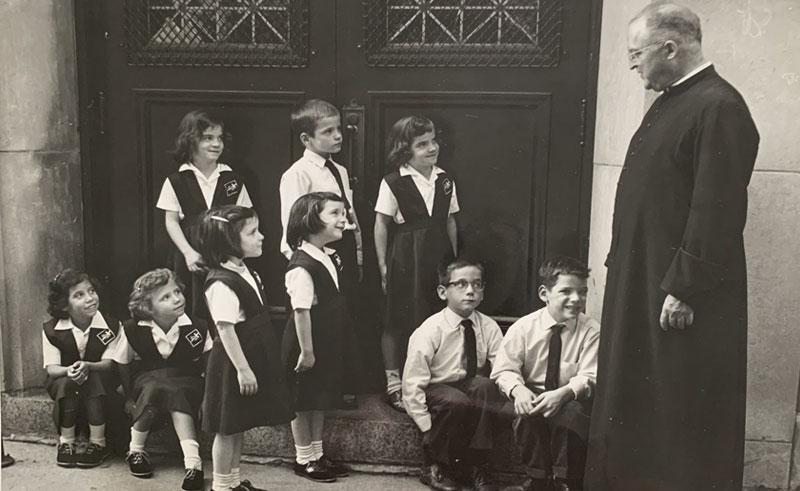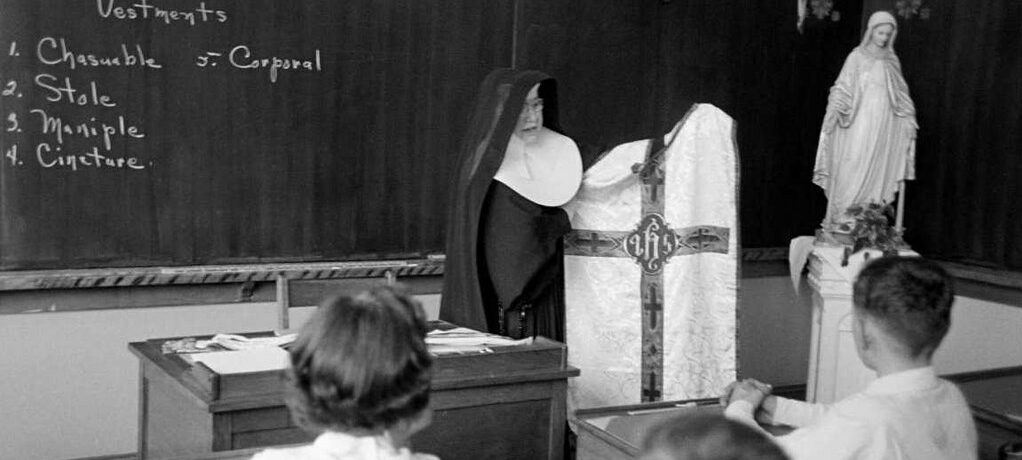Since however the younger generations must be trained in the arts and sciences for the advantage and prosperity of civil society, and since the family of itself is unequal to this task, it was necessary to create that social institution, the school. But let it be borne in mind that this institution owes its existence to the initiative of the family and of the Church, long before it was undertaken by the State. Hence considered in its historical origin, the school is by its very nature an institution subsidiary and complementary to the family and to the Church. It follows logically and necessarily that it must not be in opposition to, but in positive accord with those other two elements, and form with them a perfect moral union, constituting one sanctuary of education, as it were, with the family and the Church. Otherwise it is doomed to fail of its purpose, and to become instead an agent of destruction.—Pope Pius XI, Divini Illius Magistri. #77.
Notice above that Pope Pius XI wrote in 1929 that “the family of itself is unequal to this task” of Catholic education. By “unequal,” he meant “not up to it.” That means families are not “up” to the task of educating their children in the Catholic faith, at least not entirely, properly speaking. Who then is “up” to this task? The Pope answers, “It was necessary to create that social institution, the school.” And by “the school,” he obviously means the Catholic school. I know this might be a show-stopper for many traditional readers who see that homeschooling as the ideal of education in a world in a free-fall. But notice that Pope Pius XI just wrote that the Catholic family is not fully up to the requirements of a complete Catholic education for their own children.
Parents are indeed the primary educators of their children, but in an ideal Catholic world, this can and should be supplemented by the Catholic school system. This helps not only catechesis, but also social interactions. However, notice that I just wrote “in an ideal world” in regards to the above conclusions. Pope Pius XI wrote the above encyclical in 1929 when Catholic schools were still teaching the traditional faith. Across the globe (not just the United States) my estimate is that currently 0.1% of Catholic families still have access to schools still using traditional catechisms, like the Baltimore Catechism.
Furthermore, when priests and religious ran schools, they could offer much more affordable education than the current diocesan system in most US cities. (The vow of poverty is more linked to orthodoxy and chastity than most good traditionalists realize.) I recently spoke to a police officer with five kids who wanted to send his kids to an Opus Dei high school. But the education was $20,000 per student per year. That’s obviously cost-prohibitive on a cop’s salary, especially as he and his wife have five children.
Thus, the Catholic school is the ideal in a non-modernist theological world where education is offered to families in all economic brackets. That is rare in most of the Catholic world today. Truth does not change, but when Pope Pius XI wrote Divini Illius Magistri about Catholic schools, he obviously meant truly Catholic schools. Again, my estimate above is that 0.1% of Catholic children across the globe currently have access to affordable schools that still use the Baltimore catechism (or something equivalent to that catechism that doesn’t mince words on basic truths of the Gospel.)
Of course, that figure is higher if one approves of certain Catholic schools that are faithful but not traditional. (For example, most my nieces go to a non-traditional but conservative diocesan Catholic school and they are doing very well there, both catechetically and sociologically.)
In conclusion, there are a lot of factors to weigh. All of these contingencies make life a little more complex for Catholic families in 2024 than 1929 (when the Pope wrote that.) Thus, there is no easy answer to the title of my article, Is Homeschooling the Ideal Couples must now investigate the orthodoxy of the school. Parents should speak to other parents about the school’s safety and human formation before enrolling their children there, not because “it’s the closest Catholic school that’s affordable.” Of course, parents today should also pray to the Holy Spirit for the gift of counsel. Only God knows what is behind those walls.

